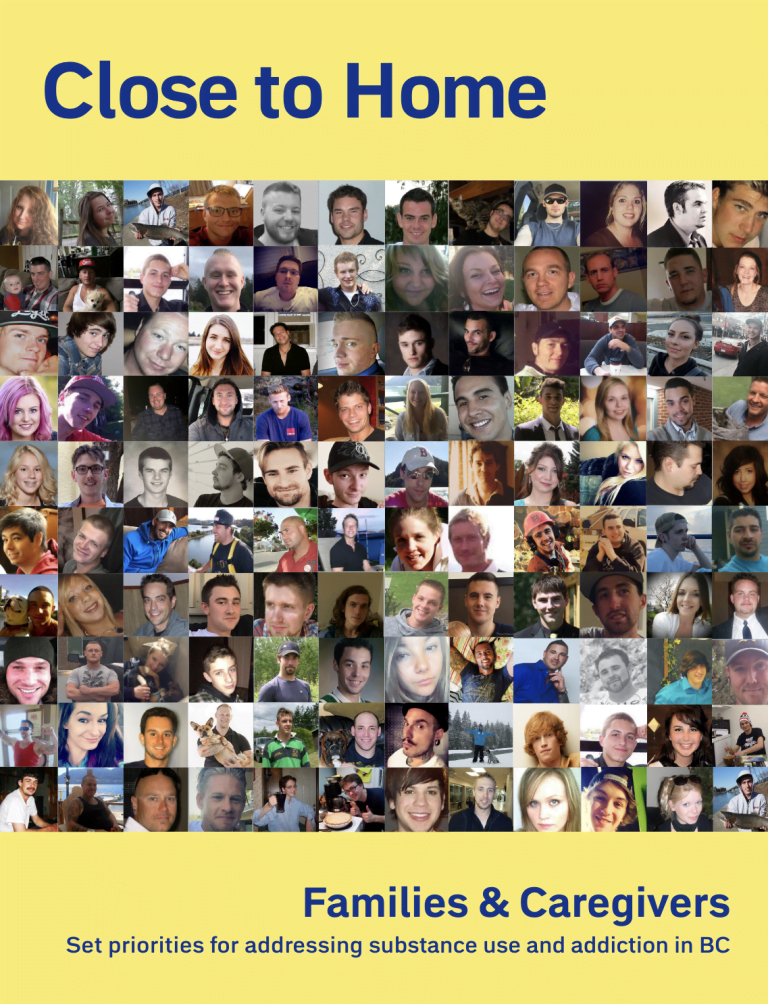Search the Baseline Project
To search the recommendations database, please visit the database main page.
To search the recommendations database, please visit the database main page.

In 2018, “Close to Home: Families & Caregivers – Set priorities for addressing substance use and addiction in BC” was published by the BC Centre on Substance Use Network of Family Members & Caregivers with the support of the Vancouver Foundation. “Close to Home” details the challenges family members and caregivers face when seeking to support loved ones who struggle with substance use disorders. It also outlines priorities and action items for the BCCSU Network of Family Members and Caregivers, the provincial government and the regional health authorities.